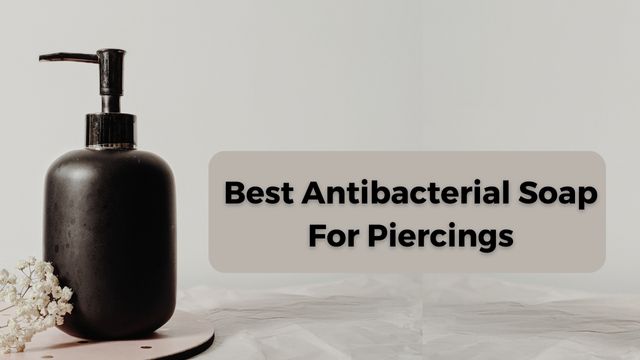can you pour bleach down the drain? if yes so this article is for you. in this post we are talking about that why you don’t have to throw your bleach on sink or drain.Household upkeep and duties frequently take a backseat in our hectic lives in today’s fast-paced society.
Disposing of cleaning materials properly is a frequent activity that we might not give much thought to. Bleach is one of these items that is often used in households due to its effective disinfection abilities.
But can you flush bleach down the toilet without endangering the environment or your plumbing? In this post, we’ll look at how to securely dispose of bleach as well as the dos and don’ts of using it.
Getting to Know Bleach
Let’s define bleach before getting into the technicalities of disposal. Sodium hypochlorite, the main ingredient in most bleach, is extremely reactive and efficient at killing bacteria and germs. When it comes into contact with your plumbing and the environment, its chemical qualities could have a big impact.
Read more- how to clean ac evaporator coils inside house.
Can you pour bleach down the drain
Effects of Bleach on Pipes
Undiluted bleach down your drains can cause a number of plumbing problems. Bleach’s corrosive properties can eventually weaken pipes, leading to leaks or even pipe breaks. Your home may sustain expensive repairs as well as water damage as a result.
Septic system effects
It is very important to use bleach with particular caution if you have a septic system. The natural balance of microorganisms in your septic tank might be upset by using too much bleach, which can decrease its effectiveness. This may result in issues with septic systems and the requirement for expensive upkeep.
read more – How to Measure Kitchen Sink.
Precautions for using bleach
Now that bleach has been clarified, let’s look at the safety measures you should follow when using it.
Suitable Ventilation
Anytime you use bleach, be sure there is enough airflow. Open the windows and doors to let fresh air in and scents out. As a result, there is less of a risk of respiratory problems and dangerous gas inhalation is prevented.
Put on protective gear
To stay protected, put on the following:
- Gloves Rubber gloves shield your skin from contact with bleach.
- To protect your eyes from splashes, put on safety goggles.
- Long sleeves and trousers
- Cover as much flesh as you can to minimise exposure.
Correct Dilute
Always follow the manufacturer’s recommended dilution rates. Use of concentrated bleach can damage surfaces and be hazardous to one’s health.
read more – how to fix garage door sensor.
Prevent using bleach and other chemicals together.
Hazardous vapours may be generated when bleach and acids are mixed. Use bleach solely on its own, and only that.
Store Caution
Maintain bleach in a cool, dry area, away from children and pets, and out of direct sunlight.
Environment-Related Issues
Bleach can harm the environment in addition to your plumbing.
Plants that Treat Water
Bleach eventually reaches water treatment facilities after it enters the sewage system. There, bleach’s compounds may interfere with the healing process, reducing its efficiency. As a result, partially treated water may be released into untreated natural water bodies.
Read more- How to Get Rid of Old Furniture: 14 ways.
Marine Life
When bleach residues enter rivers and streams, they can destroy aquatic life. These compounds have the potential to negatively impact fish and other aquatic organisms, which would disturb the ecosystem.
Safe Methods of Bleach Disposal
Because bleach might potentially damage people, it must be disposed of correctly. Here are a few secure ways to do it:
Flushing and dilution
If you need to get rid of a tiny amount of bleach, flushing it down the drain after diluting it with water is usually safe. Make careful to fully diluted the bleach by adding a lot of water.
Chemical Reactivity
The corrosive qualities of the bleach can also be neutralised. This can be accomplished by mixing bleach with a chemical neutralizer, such as hydrogen peroxide. This will lessen its toxicity before being disposed of.
Recycle Facilities
Consider transporting bleach to a hazardous waste recycling facility if you have bigger amounts or are unsure how to dispose of it. Bleach and other hazardous compounds can be safely handled in these facilities.
Read more- how to fix car ac not blowing cold air – 8 ways.
Different Cleaning Methods
Consider other cleaning options to lessen the need for bleach. Your home can be effectively cleaned and disinfected using a variety of less corrosive and environmentally friendly cleaning products that are on the market.
Bleach Uses in the Home
While it’s crucial to understand how to properly dispose of bleach, it also has many useful domestic uses that should not be overlooked. Bleach is a useful tool for:
Whitening of laundry
The capacity of bleach to brighten white clothing and get rid of tough stains is widely recognised. It can assist in keeping your whites looking spotless when used sparingly and in accordance with the care recommendations on the garment.
Surface hygienic cleaning
Bleach is frequently used to disinfect surfaces including countertops, bathroom tiles and kitchen sinks, particularly in times of increased hygiene awareness. It effectively stops the spread of diseases thanks to its ability to kill germs.
Cleaning the toilet
The standard product for keeping bathrooms hygienic and germ-free is bleach. Maintaining a sanitary bathroom can be made easier by pouring a small bit into the bowl, letting it for a few minutes, and then scrubbing.
Read more- How to Fix a Hole in the Wall: A Step-by-Step Guide.
Cleaning up toys
If you have young children, you are aware of how easily toys may attract germs. To lessen the danger of disease transmission, frequently sanitise toys with diluted bleach.
Eliminating mildew and mould
Bathrooms and other damp areas are more prone to support the growth of mould and mildew. Bleach could be a useful ally in the fight to get rid of these unwanted guests. Remember to follow safety precautions and gently ventilate the area while using bleach to eliminate mould
Emergency Actions
What you should do if you accidentally consume or are exposed to bleach is as follows:
- Breathing – If you breathe in bleach fumes and have trouble breathing, go outside right away and get help from a medical professional.
- Skin to Skin– Remove contaminated garments and thoroughly rinse the afflicted area.
- Eye contact– Seek medical treatment after flushing your eyes with cold water for at least 15 minutes.
- Consumption– Do not make yourself vomit after ingesting. After giving your mouth a good rinse and drinking lots of water, call poison control.
FAQs
Are all surfaces safe to clean with bleach?
Although bleach is a powerful disinfectant, not all surfaces should be used with it. On wood, stainless steel, and other surfaces that can discolour, avoid using it.
Can bleach go bad?
Yes, bleach can gradually lose its effectiveness. Verify the bottle’s expiration date and replace it if necessary.
Is there a disinfectant that is less hazardous than bleach?
Yes, hydrogen peroxide and vinegar are safer substitutes for bleach when it comes to disinfecting surfaces.
Can you clean fruits and veggies with bleach?
No, you shouldn’t ever clean food with bleach. Instead, sanitise using water and an item approved for food.
What should I do if I unintentionally combine bleach with another cleaning agent?
If you accidently mix bleach with another cleaning chemical and begin to feel uncomfortable or have trouble breathing, go outside right away and call poison control.
read more – how to get rid of ants in the bathroom.
Conclusion
now its clear can you pour bleach down the drain then remember dumping bleach down the drain can harm both the environment and your plumbing. Bleach must be handled carefully and disposed of correctly. Safe disposal methods include dilution, chemical neutralisation, and recycling facilities. Additionally, reducing the usage of bleach in your house can be achieved by investigating other cleaning methods.
helpful resorce- (1)


